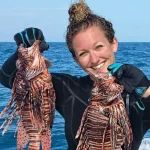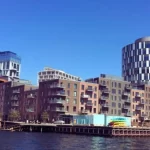As the ship eased away from the dock, the vast unknown stretched ahead: the serene Beagle Channel, the daunting waves of the Drake Passage, and then, shimmering like a precious gem, Antarctica. This trip, a dream sparked two decades ago by a school geography project, was finally coming to life. Back then, cutting out magazine photos of penguins and whales for my “All About Antarctica” poster ignited a passion within me.
I had envisioned colossal icebergs sculpted by the sun, penguins diving gracefully through icy waters, seals resting on ice floes, and albatrosses soaring on their expansive wings. It seemed like an untouched ecological haven, free from human interference. Now, aboard the MS Fram — named after the legendary Norwegian explorers Fridtjof Nansen and Roald Amundsen’s vessel — I was heading south to see it all firsthand, with a story unfolding in my mind for my novel The Edge of Solitude.
A Story Inspired by the Journey
The novel follows Ivy, a 75-year-old environmental activist seeking redemption after a fall from grace. Determined to restore her reputation and mend ties with her son, she joins a billionaire’s controversial Antarctic conservation project. Her journey begins in Ushuaia, Argentina, famously known as the “End of the World.” For Ivy, however, this marks a new beginning.
As Ivy ventures into the icy wilderness, she grapples with her past mistakes, her ambition, and her responsibility to the natural world. She encounters the ethereal beauty of icebergs floating silently, the still black waters with grease ice beneath, and the haunting sounds of glaciers collapsing. Like me, she marvels at penguins, seals, and breaching whales. However, Antarctica is far from the untouched paradise of my childhood imagination.
A Haunting Reminder of Human Presence
One of my most poignant experiences was visiting Deception Island, a volcanic caldera with a natural harbor. The island was shrouded in dense morning fog as the Fram arrived. Steam rose from the black sand beach, where gentoo penguins waddled along the shore. Amidst the white haze, remnants of the whaling industry emerged — towering boilers, rusted storage tanks for blubber, and simple crosses marking graves. These structures stood as ghostly reminders of humanity’s exploitation of this fragile land.
As I explored further, signs of human presence became more apparent: research huts adorned with national flags, bustling tourism, and the stark effects of climate change on the continent’s icy landscapes. NASA reports that Antarctica loses over 135 billion tons of ice annually, a sobering statistic that underscores its delicate position in global politics.
The Importance of Preservation
The 1959 Antarctic Treaty established Antarctica as “a natural reserve, devoted to peace and science.” This remarkable agreement relies on international cooperation to protect the continent for future generations. Programs like the International Association of Antarctic Tour Operators (IAATO) and the Antarctic Ambassadors initiative encourage responsible engagement and awareness among visitors. Onboard the Fram, we even participated in citizen science projects like Happywhale, contributing whale fluke photographs to aid in marine research.
Despite these efforts, the rusted relics of Deception Island serve as a stark reminder of an alternative narrative: one of greed-driven exploitation and environmental destruction. While bow-riding humpbacks and vast penguin colonies left me awestruck, it’s humanity’s impact on Antarctica — both hopeful and harmful — that resonated deeply. This dichotomy shapes the heart of The Edge of Solitude, where Ivy confronts the hypothetical collapse of the Antarctic Treaty and humanity’s long history of ecological recklessness.
Reflection and Responsibility
Antarctica, with its dramatic icebergs and unyielding seas, will always feel like the ultimate adventure. Yet, it is also a place of profound reflection — a space to confront past mistakes and weigh human ambition against the responsibility of stewardship. In both my journey and Ivy’s, Antarctica represents more than just a remote wilderness. It embodies the delicate balance between human aspiration and the urgent need for environmental preservation.
As the latest news highlights the growing threats to our planet, Antarctica stands as a powerful symbol of what’s at stake. Its breathtaking beauty and fragile ecosystem demand action. Whether through fiction, scientific collaboration, or global treaties, our collective choices today will shape the future of this extraordinary continent.
For now, as Ivy’s story unfolds against this icy backdrop, I carry with me the lessons learned on Deception Island — that our actions, big or small, have the power to inspire change. Let Antarctica be a daily news highlight not just for its wonders but as a call to protect the world we all share.































